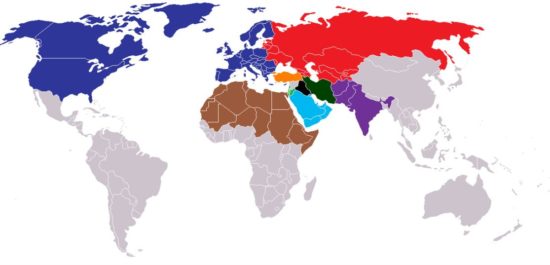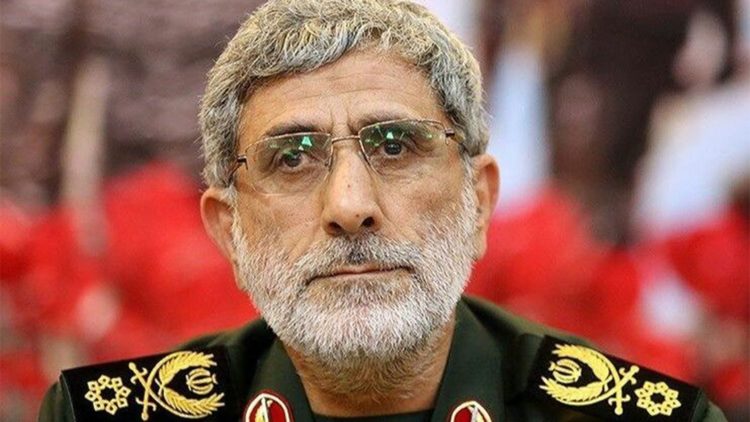The United States conducted an airstrike that not only took out the Iranian Quds Force (also known as Qods) commander General Qassem Soleimani, but also Abu Mahdi al-Muhandis the deputy head of the Iran-backed Iraqi Popular Mobilization Forces (PMF).
President Trump said that the United States decided to order the drone strike after they learned that Soleimani and the Iranians were plotting “imminent and sinister attacks” on Americans. He defined the strike as an act of deterrence rather than escalation. American reaction to the drone attack was split.
In April, the United States designated the IRGC as a terrorist group. But the Quds Force had been designated as a terrorist group even before that. So, what is the Quds Force and what role does it play in Iranian force projection in the region?
In Iraq and Syria, Iran has relied more and more on proxy forces: militias that they train, equip and lead. This gives them plausible deniability in most actions. This form of what is now called asymmetric warfare is nothing more than the unconventional warfare that has been around seemingly forever.
The Iranian military can’t go toe-to-toe militarily with its adversaries, so it relies on shadow war by proxy forces that can do their bidding. These forces gather intelligence, conduct guerrilla warfare, commit terrorist acts and subvert unfriendly governments under orders from Tehran.
Quds Force is Tehran’s unconventional arm that operates outside the Iranian borders. Quds is known in Iran as Al-Quds. In Arabic, Al-Quds actually means Jerusalem, or literally translated, “The Holy One.” Their stated goal is to free Jerusalem from the Jews and to give it back to the Arabic people.
Quds Force has ties to Hezbollah, Hamas, Islamic Jihad and several other terrorist organizations. It most recently lent help to Houthi terrorists in Yemen. In Iraq, Soleimani and Quds were directly responsible for the deaths of several hundred Americans as well as the wounding of thousands more. Soleimani and Quds brought to Iraq the means to build IEDs designed to defeat the United States.
According to a piece by the Center for Strategic and International Studies (CSIS), the IEDs constructed in Iraq showed:
“The more advanced components used in explosively formed projectiles, including the weapon assembly, copper slugs, radio links used to activate such devices, and the infrared triggering mechanisms. These devices are very similar to those used in Lebanon, and some seem to operate on the same radio frequencies. Shaped charge weapons first began to appear in Iraq in August 2003, but became a serious threat in 2005.”
Some of Quds’s troops overseas will operate as classic intelligence operatives conducting espionage, creating intelligence cells and developing assets. Many of their troops operate similarly to U.S. Army Special Forces and conduct unconventional warfare by training, equipping and leading foreign proxy forces. Most of their paramilitary training is conducted in either Iran or Sudan.
Quds is divided into branches focusing on intelligence, finance, politics, sabotage and special operations.
Already have an account? Sign In
Two ways to continue to read this article.
Subscribe
$1.99
every 4 weeks
- Unlimited access to all articles
- Support independent journalism
- Ad-free reading experience
Subscribe Now
Recurring Monthly. Cancel Anytime.

Also like Special Forces, they are organized into specific groups for each country or area of the world that they operate in. The Directorates for Quds Force include:
- Western countries (including the former Eastern Bloc)
- The former Soviet Union
- Iraq
- Afghanistan, Pakistan, and India
- Israel, Lebanon, and Jordan
- Turkey
- North Africa
- The Arabian peninsula
Quds’s budget is classified and not part of the Iranian national budget. It is controlled directly by Ayatollah Khamenei.
The exact size of the Quds Force is unknown. Estimates range from a few thousand to 50,000. However, the exact numbers aren’t as important since the Force through its proxies is a force multiplier.
With the death of Soleimani, the command of Quds now falls to Brigadier General Esmail Qaani. Ayatollah Ali Khamenei said in a statement on Friday that Quds’s program “will be unchanged from the time of [Qaani’s] predecessor.”
This means that U.S. forces in Iraq and Syria, as well as elsewhere, will be targeted by Iran’s proxy forces.











COMMENTS